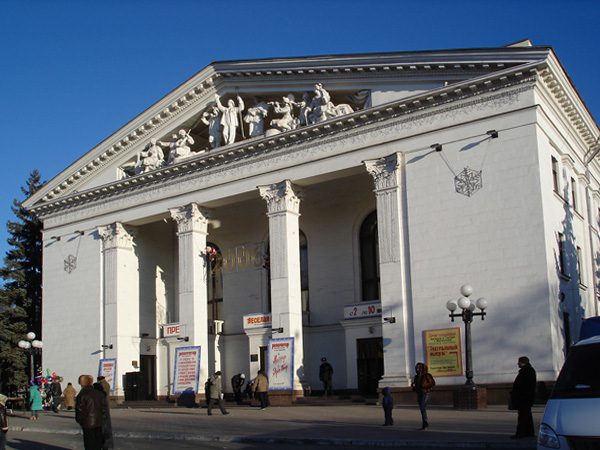
Russian strikes destroyed the theatre in the town of Mariupol on Wednesday, March 17th. The fate of the people who had taken refuge in this easily identifiable public building was uncertain for a long time. Nearly a thousand people had taken shelter in the theatre, mainly women, children, and elderly people. Signals visible from the air to the Russian air force explicitly indicated that children were in the building.
The exact number of casualties is not known at present, but the worst was avoided because the population had moved to the basement of the theatre and was thus protected from the bombing. For several days, the clearing of debris has been underway, as well as the rescue of civilians. The Ukrainian authorities accused the Russian army of deliberately bombing the theatre, as they could not have been unaware that civilians were hiding there. The Russian authorities have vigorously denied this. Joe Biden’s accusations that Vladimir Putin was a “war criminal” came after the bombing of the theatre—at a time when it was feared that all the people hiding in the theatre had died.
The Italian government, through the Minister of Culture Dario Franceschini, announced its decision to finance the reconstruction of the Mariupol theatre as it was: “Theatres of all countries belong to the whole of humanity,” he explained on his Twitter account.
#Ukraine, vtc meeting of Culture Ministers @dariofrance and @otkachenkoua: «Italy confirms commitment to the protection of cultural heritage with rebuilding the #MariupolTheatre, securing heritage at risk and supporting Ukrainian artists». #MiC #CultureUnitesTheWorld #Mariupol pic.twitter.com/DXJ80HtJ9Z
— Ministero della Cultura (@MiC_Italia) March 18, 2022
Italy has suffered the destruction of several of its emblematic theatres in the past. The Scala in Milan was razed by bombing in 1943, following Anglo-American air raids. In 1996, the famous La Fenice theatre in Venice also went up in flames—this time due to an accidental fire. Italy knows therefore more than any other country how these cultural buildings are part of both national identity and world heritage.
President Zelensky in turn warmly welcomed Franceschini’s proposal.
